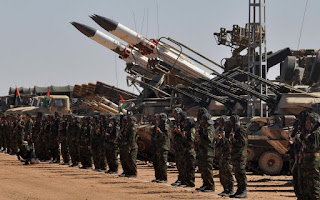If there has been one
constant refrain in the past few years it has been that the strangest events
are to be expected. Before Russia’s invasion of Ukraine, attempts at diplomacy
were tried by some of the usual suspects. French President Macron tried his
hand, Turkey’s leader Erdoğan had an attempt as well, but both attained
nothing. Now at what feels like a nadir in Ukraine, it may in fact be quixotic
to put much hope in a new entrant to the meditation effort. Attempts to mediate
before seem largely to have been scuppered not as a result of any serious failings
of the mediators themselves, but of Russia’s insistence to launch this war. Despite
that being the case, any hope at alleviating suffering should be grasped at and
Israeli mediation provides the single best hope for ending this senseless war.
It goes without saying
that efforts to seek peace are reliant on a slew of factors that are completely
dissociated with who is doing the mediating. Russia’s ultimate ambitions,
impacts of sanctions, the current state of the conflict, all of which are hard
to predict and outside the scope of this current piece play the most crucial
role. If there is a chance for peace however, Israel will almost assuredly be
at the heart of the equation.
As previously
mentioned, other potential nations have tried top play a role in preventing
hostilities, but most are seen as beholden to one side or the other, and in
many cases are too close to the conflict (as with Turkey which despite warm
relations with both parties has already had started encountering issues with
Russia in the Bosporus). This brings us to the current state of affairs where
Israel’s recently crowned Prime Minister Naftali Bennet has just been in
contact with both Putin and Zelensky, and notably is the only Western leader to
reach out to Russia’s leader since the start of the war. Mr. Bennet clearly has
Washington’s ear and the close kinship between the USA and Israel, as well as
other Western allies is well-known. Israel’s closeness to Russia may be less
so, but the 2 have in fact been closely allied in defence matters, especially
in Syria where coordination with Russia is required for Israeli sorties against
terrorist elements there. Israel is also vehemently opposed to rapprochement with
Iran, and Russia’s seat at the negotiating table for the Iran nuclear deal is a
crucial way in which it can exert influence over that process.
It is very early
stages and little has happened other than initial phone calls. Prime Minister
Bennet is still untested on the international stage and leads a coalition
government in Israel that is fractious. Many red lines remain and Putin’s aim
of Zelensky’s defenestration or Ukraine’s eternal shunning of Europe are
non-starters. Israel itself has to maintain a semblance of neutrality in order
to be effective, this will not be easy. Already, Israel’s policy of only
allowing 5,000 non-Jewish Ukrainian refugees in (unlimited numbers of Jewish
refugees from Ukraine will be granted automatic Israeli citizenship under the “Law
of Return) is causing ructions in Ukraine and among some members of Israel’s
coalition government. Israel, unlike traditional allies has not imposed
sanctions on Russia, but could be under intense to do so again, not least
because of internal political pressure. These and many other actions deemed
unreasonable by either side make this a very perilous line for Israel to
straddle indeed.
There are no shortage
of unanswered questions with regards to the potential for mediating out of this
conflict. Is mediation even possible? Is Putin interested in ending this war?
Does Neftali Bennet has the diplomatic heft to pull something like this off?
Still, in these exceedingly strange times a country normally at the centre of outside
mediation efforts between itself and Palestine, now finds itself uniquely
placed, between a kindred Jewish leader in Ukraine, close security ties with
both the West and Russia, as well as just enough geographical and political
distance to potentially be effective. For the current suffering in Ukraine, let’s
hope this opportunity, no matter how remote, can in fact be realized.






